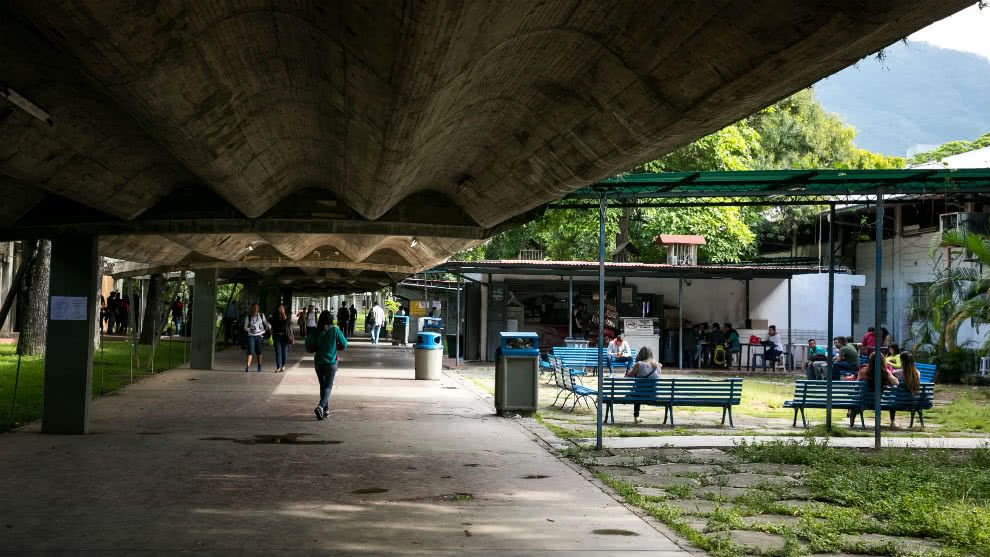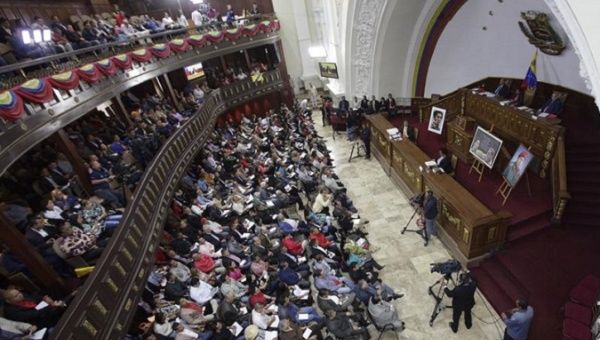The United Nations Economic Commission for Latin America and the Caribbean (ECLAC) warned that the COVID-19 pandemic will generate profound consequences for the region’s economy.
ECLAC had foreseen a context of low growth in the sub-continent, before the appearance of the Coronavirus, and warned that the disease and measures to prevent its spread would increase inequality and vulnerability among the population, hindering the efforts to reduce poverty.
“Quarantines and physical distancing measures, which are needed to stop the rapid spread of the coronavirus and save lives, are leading to job losses (11.6 million more unemployed in 2020, compared to 2019) and reducing personal and household labor income. The loss of income is primarily affecting the broad strata of the population that are living in or vulnerable to poverty, and people working in activities that are more exposed to layoffs and pay cuts and, in general, those in precarious employment,” affirmed the UN organ in a report published in May.
In the report, ECLAC emphasizes the precariousness of Latin American labor markets and the high proportion of informal jobs (53.1% according to the International Labor Organization), highlighting that the effects of measures to confront the pandemic will have a painful effect on family economies.
ECLAC foresees a fall of 5.3% in the Gross Domestic Product of Latin America and the Caribbean and an increase in unemployment of 3.4%. According to the commission, poverty in Latin America may rise in 2020 “by at least 4.4 percentage points (28.7 million more people) compared to the prior year, bringing the total number of people living in poverty to 214.7 million (34.7% of the region’s population)”.
ECLAC’s projections for the growth of poverty in Latin America after COVID-19, reflect discouraging data.
Mexico, Nicaragua, and Ecuador will experience the greatest increases in poverty during 2020. In the “high” scenario of ECLAC, the country ruled by Andrés Manuel López Obrador would reach, at the end of the year, 17.1% of extreme poverty and 48.9% of non-extreme poverty. According to ECLAC, a scenario of high growth in poverty will condemn 66% of Mexicans to poverty.

In the “high” scenario, ECLAC forecasts a poverty figure of 74.9% for Nicaragua, with 52.7% of the population living in poverty and 22.2% in extreme poverty. Although Venezuela was not included directly in the report due to lack of official data, the ECLAC data allow us to affirm that our country will be at the top of the continent’s poorest. The country governed by the “Bolivarians” surpasses all the countries included in the ECLAC’s list.
Venezuela on top
Nicolás Maduro came to power in Venezuela in April 2013. In September of that year, he presented to the National Assembly the “Second Socialist Plan for Economic and Social Development of the Nation 2013-2019” known as Plan de la Patria, in which he explained the “Historical, National, Strategic, and General Objectives” that would guide his administration.
The Plan de la Patria had been Maduro’s electoral offer in the 2013 race. It was unconstitutionally converted into law during the previous administration of the National Assembly, under control of the ruling party. The plan’s goals included a Human Development Index of 0.800, 15% of general poverty, and 0% extreme poverty for 2019. Likewise, Maduro’s promises placed the average annual inflation at 20% and an average annual growth rate between 3.0% and 4.0%.
A new version of the instrument, presented in 2018 in the framework of the fraudulent presidential elections called by the national constituent assembly, reflected on the “achievements” of Maduro’s administration. In the Plan de la Patria 2019-2025, the government affirmed that the percentage of households in structural extreme poverty -measured by Unsatisfied Basic Needs (NBI )-, had decreased to 4.3% for 2019. The new document postponed the goal of 0 % of extreme poverty by NBI for 2025.
Conveniently, the Venezuelan National Statistics Institute (INE) stopped publishing poverty figures by Income Line (LN) in 2016 and has only published -until November 2019- poverty indexes in households by Unsatisfied Basic Needs. Before 2016, the INE used to publish the data under both methodologies, making it possible to measure poverty from a broader and complementary perspective.
Although the measurement of poverty by Unsatisfied Basic Needs makes it possible to identify structural causes of the phenomenon, the customary official mythomania casts doubt on the results of the measurements made by the INE, which are based on variables and indicators that are easily adjustable to the official narrative. On the other hand, abandoning the measurement of poverty by Income -amid a hyperinflationary economic context- reveals that the official intention is to hide the real dimensions of the problem. A high percentage of Venezuelans do not have sufficient capacity to satisfy their food needs. Hiding that reality condemns thousands of families and constitutes an obstacle to the eventual development of public policies that help overcome poverty.

The economic disaster that impoverished Venezuelans
In economic and social matters, the results of the Maduro administration have been dire. Venezuela is a country with a devastated economy, which for six consecutive years has suffered a cumulative drop of 70% in its internal production, expected to add a further 15% this year, according to ECLAC. This figure is one of the largest contractions registered in recent decades worldwide and will cause more damage to the deteriorated productive capacity of the country.

Between 2013 and 2019, Venezuelans have suffered the terrible economic and social management of the Maduro regime, which led the country – for the first time in its history – to a scenario of hyperinflation that pulverized workers’ wages and social benefits, erased their savings, and destroyed the aspirations for social mobility of hundreds of thousands of families. Consumption collapsed and the national currency was crushed. Venezuela is going through a complex humanitarian emergency caused by Maduro’s disastrous management.
During 2019, the deterioration of the minimum wage in Venezuela was significant. The fall in income placed most of the Venezuelan workers in a situation of extreme monetary poverty since it plummeted below the minimum of $1.90 a day stipulated by the World Bank to consider a person in that condition.
On average, the national minimum wage in 2019 stood at $ 4 per month – calculated at the official rate of the Central Bank of Venezuela (BCV); this means a Venezuelan worker or pensioner earned 0.13 cents a day. For April 28, 2020 -date of the lastest increase decreed by Maduro- the minimum wage was 4.7 $ a month, roughly 0.15 cents a day; and by the date of publication of this article, the national minimum wage had fallen to $ 2.06, equivalent to 0.06 cents per day calculated at the official rate of the BCV. The daily income of a worker in Venezuela is very far from the minimum standard of the World Bank.

In 2015, the National Survey on Living Conditions (ENCOVI) reflected 73% of poverty (49.9% extreme); for 2016 the same instrument registered 82% of poverty (51.5% extreme); in 2017 the figure stood at 87% (extreme 61.2%).
By 2019, poverty figures by Income Line would reach approximately 90% of the Venezuelan population.

The “2020 Global Report on Food Crises“, published in April by the “Global Network against Food Crises” and the “Food Security Information Network”, with the participation of the United Nations’ World Food Program (WFP) -at the invitation of the Maduro government-, indicated that 26.3 million Venezuelans suffered some degree of food insecurity in 2019. 9.3 million of them suffered moderate and severe food insecurity, and 17 million suffered marginal or mild insecurity.
In a “food insecurity experience scale” built by the Food and Agriculture Fund of the United Nations (FAO), a situation of slight food insecurity translates into the uncertainty of individuals or families about their possibilities of obtaining food.
Moderate food insecurity implies -in addition to the uncertainty regarding the obtaining of food-, that the person or the family does not have sufficient economic capacity to defray the cost of their food and must reduce daily consumption.
A scenario of severe food insecurity means that a person ran out of money and did not eat for a whole day, several times in a year. That was the situation of 2.3 million Venezuelans during 2019.
The official decision not to publish the poverty figures by Income Line made invisible thousands of people who receive a daily -or monthly- income lower than the cost of the Basic Basket (which includes food, housing, and clothing, among others) and the Basic Food Basket (including food only), who would be living in some form of poverty.
In Venezuela, the prevalence of undernourishment almost quadrupled, going from 6.4% between 2012-2014 to 21.2% between 2016-2019, according to the FAO’s 2019 report on “The state of food security and nutrition in the world”. The United Nations agency registered an increase in undernourishment rates in Latin America and the Caribbean as a result of the situation in South America, a region in which the prevalence of undernourishment went from 4.6 % in 2013 to 5.5% in 2017. According to FAO, the increase was due to the economic slowdown experienced by several countries, especially Venezuela. “During the same recession period, inflation in the country was reported to have reached circa 10 million percent and growth in the real GDP worsened, going from negative 3.9 percent in 2014 to an estimated negative 25 percent in 2018”, the report indicated.
Families in Venezuela face severe deprivations that limit their human development and compromise their ability to achieve an adequate standard of living. Schooling or the pursuit of studies are subjects under discussion, since the precarious family income is barely enough to eat, in the best cases. During the academic period 2017-2018, there was a decrease of 8 percentage points in the number of children and youth enrolled in school, falling from 78% to 70%, while non-attendance increased at a similar rate to stand at 6% during the same period.

Hitting rock bottom
Between 2012 and 2017, Venezuela fell sixteen places in the global Human Development Index (HDI), as revealed in a 2018 report by the United Nations Development Program (UNDP) with data collected until 2017.
Venezuela ranked 78th out of 189 countries analyzed by the agency, and 8th among Latin American countries, on a list where Chile showed the highest index in the region and Haiti the lowest one -at 168th place globally-. The UNDP report warned that the decline experienced by Venezuela is one of the largest in the indicator that reflects national achievements in health, education, and income level. “Only Syria, Libya, and Yemen, three countries with protracted conflicts, show more dramatic falls,” the agency warned.
The UNDP highlighted that Venezuela’s per capita income decreased by 25.8% between 1990 and 2017. According to the HDI report for 2012, Venezuela’s gross national income per capita stood at $ 11,475; while the 2017 report estimated a figure of $ 10,672. Data corresponding to 2018 was not included in the report; therefore, the severe drop in income and the massive exodus of Venezuelans make us fear that the current situation is even worse.
The abrupt fall of the HDI coincides with the arrival of Nicolás Maduro to power and the rebound of other negative indicators in the field of Human Rights.
The commitments made by the Venezuelan State in the 2004 Declaration of Nuevo León, aimed at the pursuit of sustained and equitable economic growth “that contributes to long-term development, reduces poverty, eliminates hunger, and raises the standard of living of the population ”, have become a dead letter.
After enjoying the highest oil income in our history for several years, today the social indicators are in free fall, and the main responsible person for this situation intends to continue clinging to power by increasing hunger and repression.
Translated by: José Rafael Medina.




